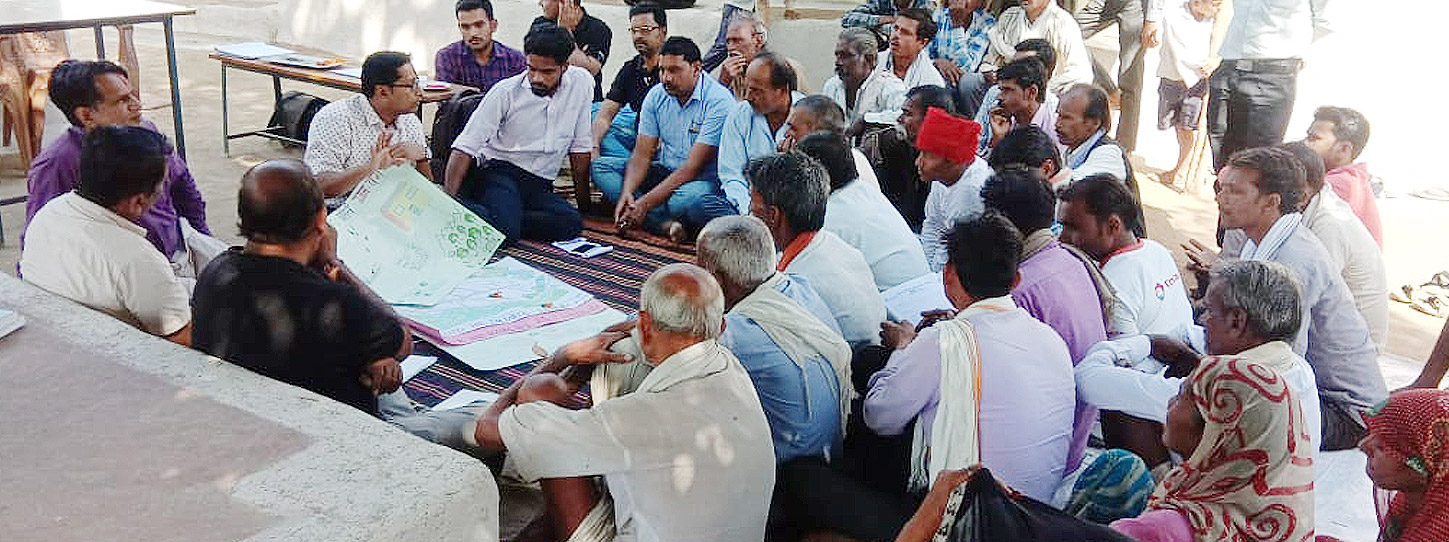
Small and fragmented land holdings do not allow farmers to have independent farm resources. In the past, the focus had been on the maximization of crop yields for resource-rich farmers. Marginal and small farmers, in general, are uneducated, financially weak, their holdings are small and scattered which is not suited for high-tech agricultural machinery. They work in resource-poor and risk-prone diverse conditions. A lot of efforts have been made at increasing the productivity of different components of the farming system but there is a gap still remaining within the farming system approach to address integration. Focus on breeding, use of agro-chemicals and irrigation-based high input technologies resulted in deteriorating soil health, high disease & pest infestation, crop loss/failure and negative impact in water management (e.g. groundwater depletion) making the farming contexts more vulnerable for small farmers.
Madhya Pradesh consists of 11 Agro – Climatic zones with diverse soil and climatic condition which helps to support the cultivation of a wide range of crops with diversified cropping pattern. The economy of the State depends mainly on the agricultural sector as more than 80% of the people depends on agro-based livelihood and contributes around 46% to the state’s economy.
Caritas India with the help of Smallholder Adaptive Farming & Biodiversity Network (SAFBIN) program in Madhya Pradesh, initiated dialogue with Smallholder collectives, civil societies organisations, agriculture research, extension agencies & academic institutions to discuss potential Integrated Farming System (IFS) models for smallholder farmers in the context of Production, Income, Nutrition, Resilience and Farmer control.
SAFBIN programme is implemented in 25 villages of Mandla, Sagar and Vidisha Districts of Madhya Pradesh to end hunger, achieve food security and improved nutrition and promote sustainable agriculture for 1366 farmers (920 male + 446 female). The process of smallholder collective led On-Farm Adaptive Research (OFAR) is followed through a vulnerability assessment, blending innovations, multi-stakeholder engagements, designing & testing of models, generating learnings, monitoring to refine the models.
Caritas India is paving the way for Integrated Farming System (IFS) in the farming practices to maximise the farm production while taking care of optimal utilisation of existing farm resources in an integrated manner by reducing the input cost and building connections among all farm components suited to the given agro-climatic conditions.
The methodology blended with primary data, participatory rural appraisal, secondary research, series of consultations with implementing partners as well as relevant stakeholders has been trusted to analyse the smallholder farming challenges in the context of climate change, food, and nutritional security. Detailed mapping was done at the ground level not only to identify the problem but more importantly enable smallholder to gain a thorough understanding of local agricultural vulnerabilities, challenges and effect on food security in the context of climate change. During the whole process, major problems (critical crop stage, % of effect in crop yield, etc.) related to the present farming systems were discussed and documented along with traditional practices (integrated nutrient management, integrated pest management, integrated weed management, seeds, etc.).
Information and data are consolidated based on the existing farm components and connections presented in multi-stakeholder partnership workshops for further screening and validation of draft IFS options to initiate on-farm trials.